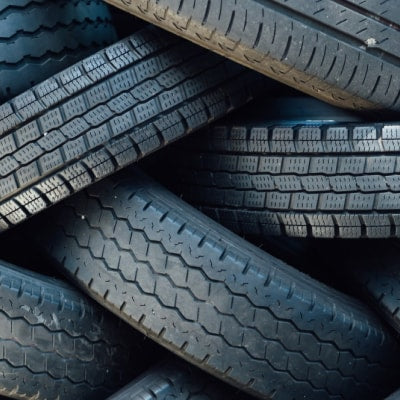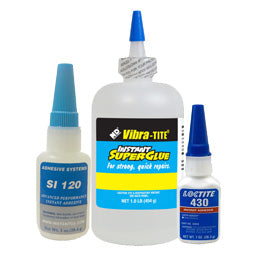Adhesives for Polyurethane
When looking for the best glue for any application, one of the most important considerations is the substrate materials you are bonding. Polyurethane is a synthetic material with various uses, but not every adhesive can bond to it well. To help, our team reviews the ins and out of gluing polyurethane, including surface preparation tips and a few products to explore.
What Is Polyurethane?
Polyurethane (PU) is a synthetic material comprised of organic compounds connected by carbamate or urethane links. Urethane is commonly used to make materials that behave similarly to plastics and rubbers.
Polyurethane was first developed in Germany and can take various guises, including flexible foam, rigid foam, coatings, sealants, elastomers, thermoplastics, and more. While these forms may look and feel different, they have essentially the same chemistry. This diversity also gives polyurethane a wide range of uses.
Some applications for the different forms of polyurethane include:
-
Flexible Foam- bedding, furniture, packaging
-
Rigid Foam- wall insulation, roof insulation, window and door insulation
-
Coatings & Sealants- hardwood floor, automotive industry
-
Thermoplastic- footwear, automotive body, construction components, medical devices
Is Polyurethane a Rubber or Plastic?
Polyurethane acts like a rigid plastic with the elasticity of a rubber. Although it behaves similarly to these materials, polyurethane is actually neither.
Polyurethane is more durable than rubber with a longer lifespan, especially in more demanding environments. While both materials are elastic and flexible, polyurethane is able to withstand more exposure to stretching or stress than rubber. It also maintains its properties in higher hardnesses and in a wide range of temperatures. In contrast, rubber will start to degrade from repeated exposure to these elements. Polyurethane also has better resistance to abrasion and scratches.
Compared to thermoplastics, polyurethane is able to withstand repetitive impact without breaking or degrading and maintains its strength even at higher hardnesses. It also has better abrasion and wear resistance than thermoplastics, so it tends to be a more durable material.
For the sake of organization, we have included polyurethane under "Rubbers" since we receive many questions about bonding polyurethane rubber and highlight some products with this in mind.
Adhesives for Polyurethane
When it comes to any bonding application, choosing the right adhesive for the job is important. Our team shares some potential glues for polyurethane, so you can research them more and see if they are a good fit for your specific application.
-
![300 ml Cartridge of Sikaflex 221 Sealant]()
Sikaflex 221 Adhesive/Sealant
This versatile adhesive sealant is not only a general-purpose adhesive but also can be used for internal sealing. It meets several certifications related to drinking water system components and NSF Proprietary Substances and Nonfood Compounds regulations. It is also low-odor and non-corrosive.
-
![3M 5200 Marine Adhesive Sealant]()
3M 5200 Adhesive Sealant
Designed mostly with marine applications in mind, this adhesive sealant can be used to create waterproof seals on joints both above and below the waterline. It is also made to handle vibration, shrinking, or shock.
-
![10 oz Cartridge of Sika Sikaflex 252 Elastic Adhesive for Vehicle Assembly Bonding]()
Sikaflex 252 Vehicle Assembly Adhesive
Another good polyurethane adhesive glue, this product is designed primarily for automotive manufacturing applications. It can withstand dynamic stresses including vibrations and movement. It can also be used for gap-filling, is paintable, and has great vibration-dampening characteristics.
While these products are great for gluing polyurethane in many applications, it doesn't mean that it is the best adhesive for your needs. Especially considering how diverse polyurethane is, you want to make sure you choose an adhesive that is compatible with your specific application. Fortunately, we can help. Contact us to get a personalized product recommendation or to ask about our lab testing services.
Gluing Polyurethane
Bonding polyurethane can be a bit tricky. It is important to consider the type of polyurethane you are bonding when choosing an adhesive as well as the surface preparation needed for that adhesive.
In general, PUR adhesives are a good choice to bond polyurethane, especially rigid polyurethane. These adhesives are polymer-based glues that have a reaction between an isocyanate and a polyol. They can come in both one-component or two-component systems. They will also continue to cure as they react with moisture in the air.
Cyanoacrylate adhesives can also be a good choice to glue polyurethane. There are different grades of cyanoacrylates depending on your specific application needs. You may also want to use an activator to accelerate the cure time.
Epoxy adhesives are another option for gluing polyurethane in some applications. This type of adhesive is known for its great strength and durability. It also has good chemical and temperature resistance.
Usually, some amount of surface preparation is recommended when bonding polyurethane. The exact surface preparation will largely depend on the specific product. In general, the surface should be clean and dry. Cleaning is often done with a solvent wipe containing isopropanol. In some cases, using a primer or abrading the surface before bonding is also recommended.
Ready to Try?
The best adhesive for a polyurethane application will depend not just on the fact that you are gluing polyurethane but also on several other factors. You need to consider the bonding environment, production process, equipment, budget, and more.
If you are thinking about switching the adhesive you currently use, make sure the new adhesive is compatible with your application needs. You should follow the manufacturer's instructions for best results. It is also important to test it first on your application before you begin rolling out the adhesive on a wide scale. A test could save you a lot of wasted time and product if the adhesive ends up not being a great fit. Every adhesive is also different, so always follow the manufacturer's recommendations for storage, shelf life, and recommended safety precautions.
Because there are so many factors that can impact which adhesive for polyurethane is best suited for your needs, we can provide you with a personalized product recommendation. Contact us to get started.
Highlighted Products
Ask a Question
Have questions? Our team of adhesive experts can help. Submit your questions and we'll get you answers right away. We're here to help.










